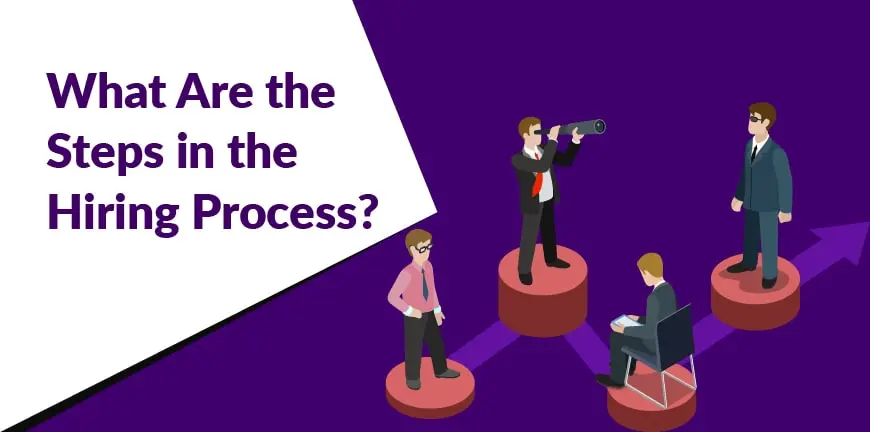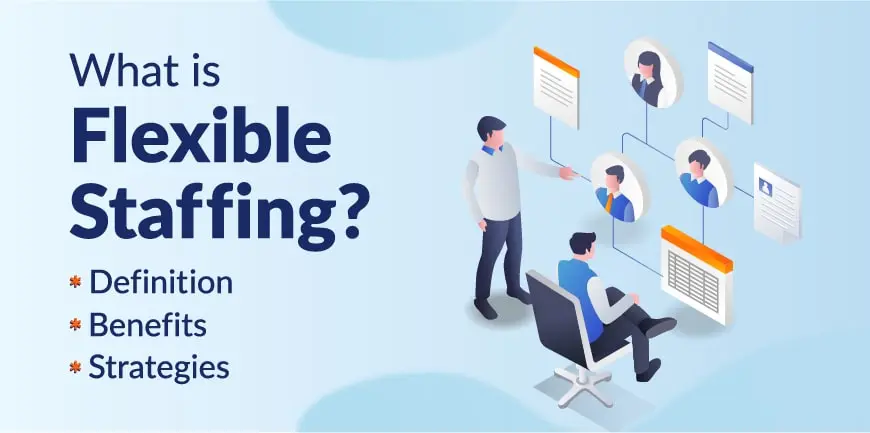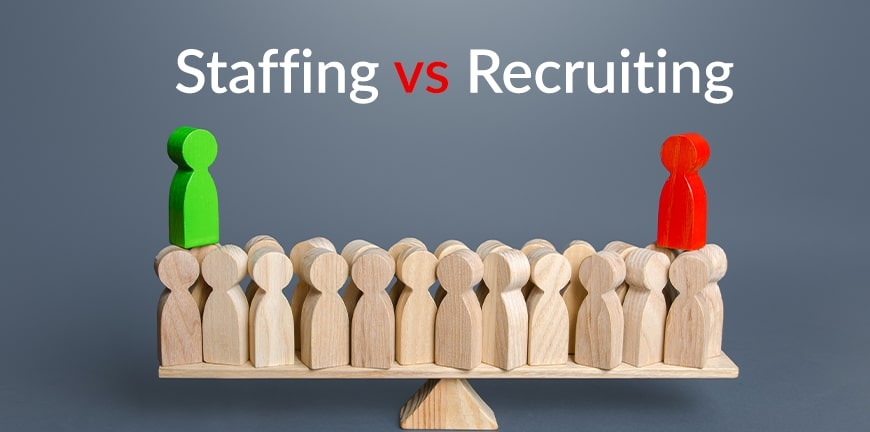
How to Conduct an Exit Interview?
06/08/2024
What Are the Steps in the Hiring Process?
10/08/2024Before we discuss flexible staffing and what it is all about, let us shed some light on how it all began. The Pandemic caused companies to think differently. Remote work as a way of working became more popular. This meant that more and more companies started asking employees to work remotely. Post the pandemic, things ought to have changed, but companies discovered certain benefits of working remotely, so they continued to do so.
And later, moved to a hybrid model of work, where some of the days a person would work remotely and on others from the office. How about a model of working where some people would always be remote and others working from the office permanently? This type of work arrangement is referred to as flexible staffing. More companies today are realizing the importance of flexible staffing options and a flexible staffing agency.
What Is the Importance of Flexible Staffing?
Cost-Efficiency
This is a big plus for any flexible staffing options you rely on. When people work remotely, there is a lot of savings on new infrastructure costs, maintenance costs, transportation costs and some savings on other benefits like food and beverages too.
Improves Retention
When you have a combination of full-time and remote employees, then the employees who are in service will be less impacted by layoffs, if they happen to remote employees. This is because they will still have colleagues with whom they have bonded over time and prefer to work with too. By laying off remote employees in a transition, you can improve retention.
Prevents Bad Hires
Since employers have the flexibility to hire both remote as well as full-time work from office staff, they have the freedom to hire those highly skilled people who wish to work on a contract or on gigs remotely. This greatly reduces the risk of bad hires in flexible staffing.
Increased Productivity
Flexible staffing can greatly increase productivity. Generally, remote staff are known to perform a lot better than those who work from the office, typically because of a stress-free environment and a great work-life balance. So having a few key employees working remotely while keeping your backup staff within the office too can greatly improve the productivity of the office.
Helps Upskill Workspace
Having a flexible staffing arrangement allows you to hire highly skilled people. This leads to a learning and development boost at the workplace, where everyone learns from them and implements their new learning to drive innovation. This will in turn also lead to better internal mobility for those who are now upskilled.
Which Sectors Benefit Most from Flexible Staffing and Why?
1. Healthcare
Healthcare is a sector with fluctuating needs. With the growth of telemedicine, remote staff has become a mainstay for healthcare as well. So having a flexible staffing strategy, backed by a flexible staffing agency, is very beneficial.
2. IT
The IT sector has a clear working arrangement for projects which involves a lot of people working remotely from around the world. Modern collaboration tools have made this possible. So, flexible staffing will be a useful strategy.
3. Retail
The retail industry has found some rejuvenation with online driving sales in brick-and-mortar shops as well. But the work dynamics in retail demand a more flexible arrangement, especially with several people going online during the pandemic. So, flexible staffing options have become a great strategy.
4. Construction
Construction has always relied on temp staff to speed up the process, especially when the builder wants it done at a much faster pace to ensure speedy completion. Here too, flexible staffing options will prove to be remarkably helpful.
5. Warehousing
Warehousing is another sector that requires staff to act patiently yet quickly. There is a lot of automation happening here, and it is quite likely that a lot of the engineering staff making this possible are working remotely, provided solutions are being developed in-house.
What Are Some Flexible Staffing Strategies?
Flexible staffing strategies ensure that the company can gain benefits from adopting this approach. Some of the top strategies in flexible staffing that companies can use are:
Collaborate with a Staffing Agency
You can get the help of a staffing agency to understand the market and gain insights into the recruitment process. This will greatly reduce the time and cost of hire and more importantly increase the quality of hires.
Assess your Staffing Needs
How many hires do you need? What are the qualifications and experience that is required? This is another vital flexible staffing strategy that you must start with.
Broaden the Talent Pool
Find talent for specific skills by hiring workers who want to work remotely. Allow experienced workers to work remotely, if they have the necessary skills. Even if you do not hire them immediately, you can always get back to them later.
Allow Flexibility to Permanent Employees also
Permanent employees need flexible work arrangements to ensure that they can maintain a work-life balance, are happier and more productive. Allowing a flexible work arrangement can ensure that they stay on in your company.
Replace Core Employees with Remote Staff
Replacing core employees with remote staff or replacing remote staff with permanent employees allows you the freedom to focus on any one working style you find advantageous. This can greatly help the company when it is in a crisis, or it needs to scale.
Why You Need a Flexible Staffing Partner
A flexible staffing partner can help you meet your flexible staffing needs much more easily than you think possible. With experience of over two decades in flexible staffing, Alp Consulting can help you meet the stringent needs that stakeholders have set for your business. We will hire and train the very best talent, be it temporary, contract or even a blended work arrangement. Talk to us today to understand how best we can help you.
Contact Us For Business Enquiry

Kasthuri R
Kasthuri R is the Co-Founder & Executive Director at ALP Consulting, bringing over 23 years of experience in search, staffing, and HR consulting. She has been instrumental in driving ALP’s recruitment, employee leasing, and executive search practices across diverse industry verticals. With deep expertise in talent acquisition, HR strategy, and operational management, Kasthuri has built scalable, client-focused solutions that enhance workforce efficiency. Her strategic leadership continues to steer ALP Consulting toward innovation and excellence in people management.




